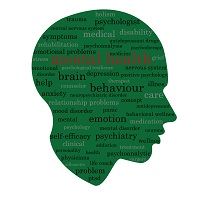Article
Shared Traits of Borderline Personality Disorder and Bipolar Disorder
Author(s):
A recent study compared borderline personality disorder and bipolar disorder in order to evaluate and compare the levels of psychosocial morbidity in patients with these disorders.

Psychiatric disorders such as borderline personality disorder and bipolar disorder are equally debilitating, according to findings presented in The British Journal of Psychiatry.
Researchers from Rhode Island Hospital compared borderline personality disorder and bipolar disorder in order to evaluate and compare the levels of psychosocial morbidity in patients with these disorders. A total of 307 patients with DSM IV diagnosed borderline personality disorder but without bipolar disorder and 236 patients with only bipolar disorder were interviewed by the researchers.
The researchers said that previous research had not examined that the two disorders are similarly debilitating, however existing hypotheses suggested that to be the case.
“The level of psychosocial morbidity and suicidality associated with borderline personality disorder is as great, or greater, than that experienced by patients with bipolar disorder,” researcher Mark Zimmerman, MD, explained in a press release. “From a public health perspective, improving the detection and treatment of BPD is as imperative as diagnosing and treating bipolar disorders.”
The researchers determined that the borderline personality disorder patients, who were frequently college graduates, had been diagnosed with more comorbid disorders. Additionally, those patients more frequently had a history of substance abuse, reported more suicidal ideation at the time of the interview, more frequently had attempted suicide, reported poorer social functioning, and were rated lower on the Global Assessment of Functioning.
But most importantly, the two patient groups demonstrated no differences in the categories of history of admission to psychiatric hospitals or the time missed from work throughout the prior five years.
Among the study cohort, borderline personality disorder was as frequent as bipolar disorder. However, the National Institute of Mental Health (NIMH) reports that 1.6 percent of the population has a borderline personality disorder diagnosis. NIMH estimates that 2.6 percent of the population has been diagnosed with bipolar disorder.
While the symptoms are similar — like depression, anxiety disorders, substance abuse, eating disorder, and suicidal behaviors – and it may be difficult to separate the disorders, it is important that psychiatrists recognize the differences among patients to give them the aid they require.
“Despite the clinical and public health significance of both of these disorders, it sometimes seems as if borderline personality disorder lives in the shadow of bipolar disorder,” Zimmerman continued. “Bipolar disorder is a widely researched, well publicized, well funded topic. By contrast, borderline personality disorder is seldom discussed and it is not included in the Global Burden of Disease study, a comprehensive registry that quantifies diseases by cost, mortality, geography, risk, and other factors.”
2 Commerce Drive
Cranbury, NJ 08512
All rights reserved.





